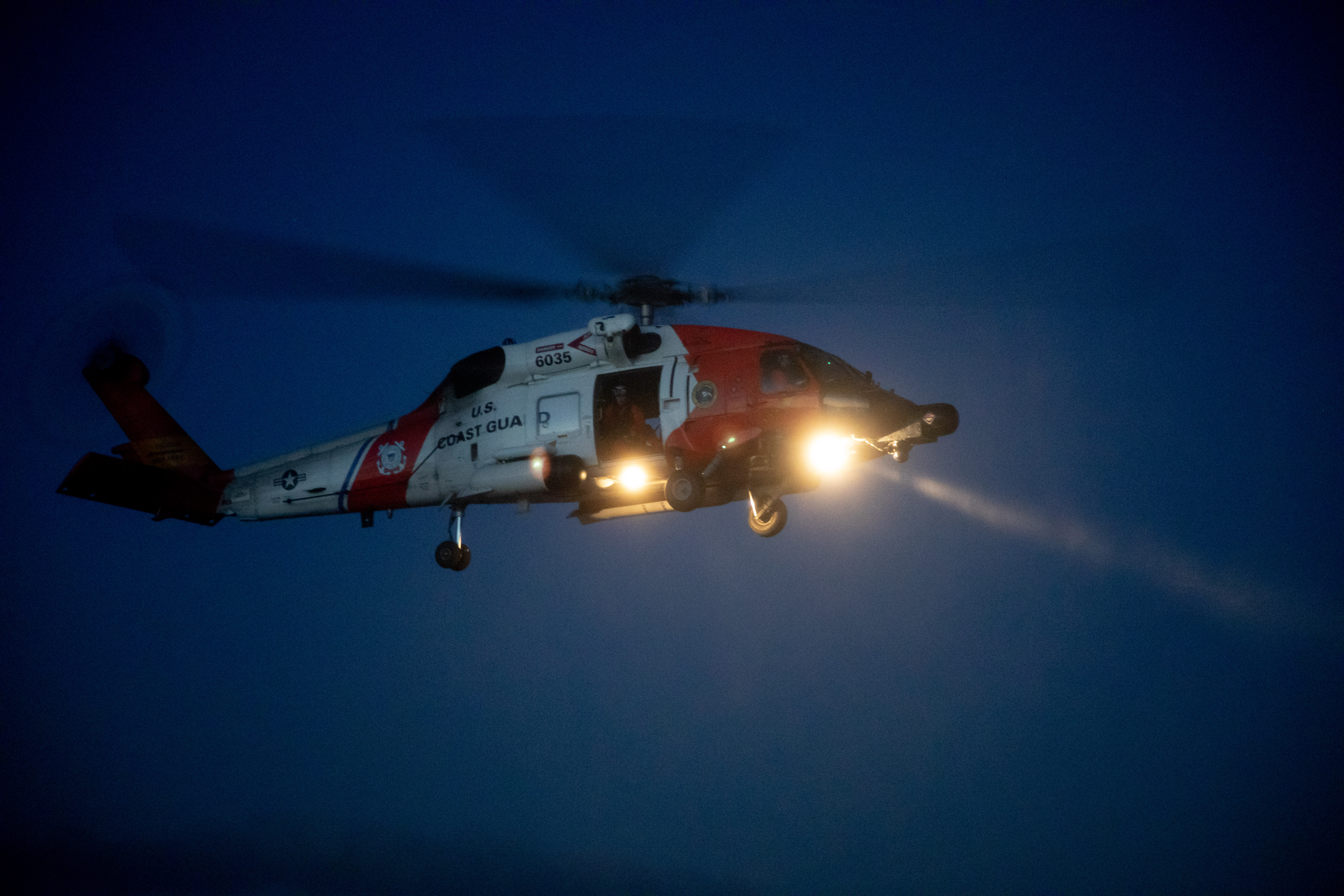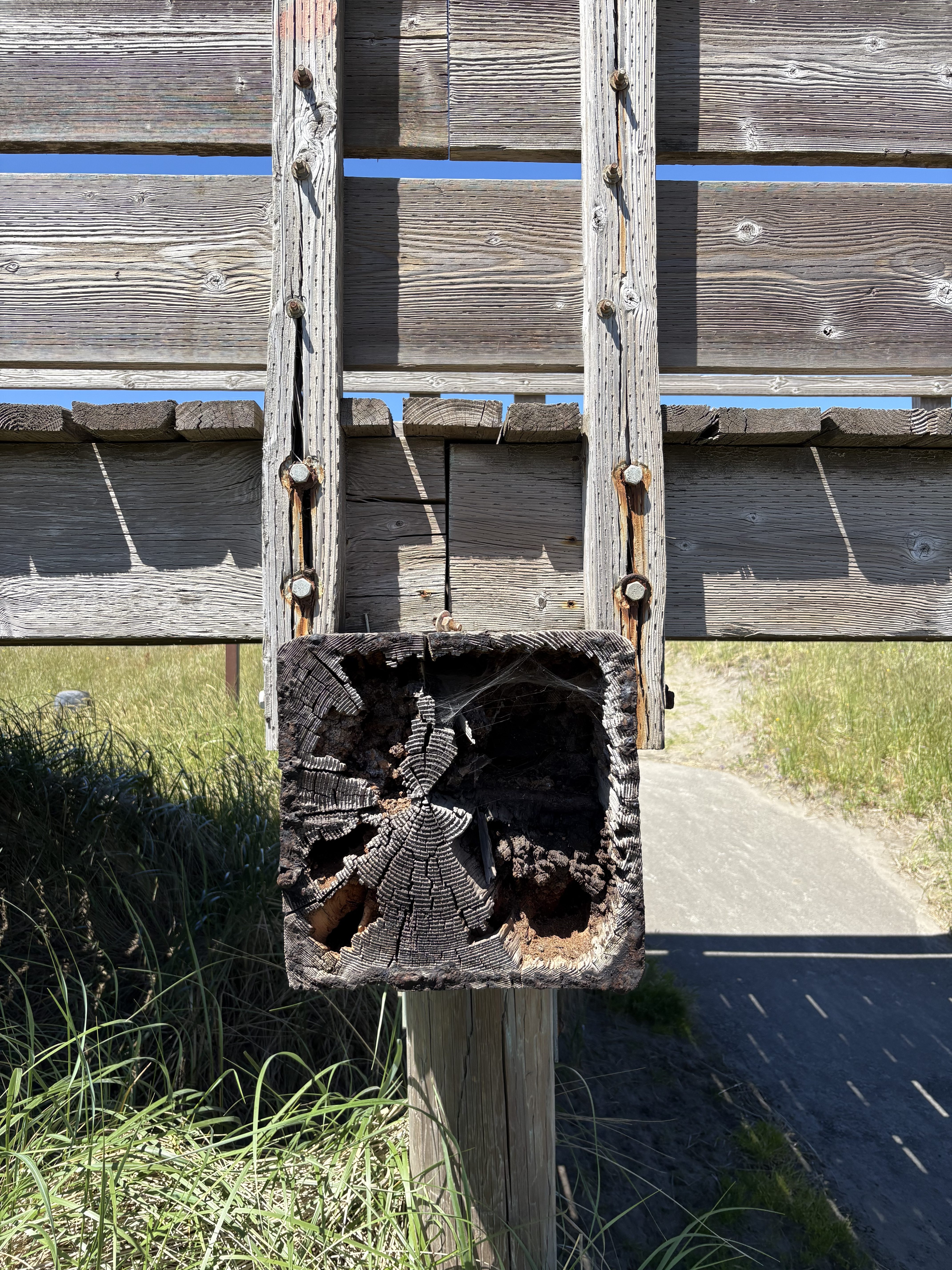Life: Two boys in a boat: Magic memories of autumn days
Published 10:48 am Thursday, September 3, 2020

- Eric Wiegardt, seen through a foggy window on the bay, has continued a long tradition of waterfowl hunting on Willapa Bay.
The photos that accompany this nostalgic essay by Seaview’s David Campiche were taken nine years ago by ace photojournalist Damian Mulinix. They provide a glimpse of a beautiful morning on Willapa Bay in the company of well-loved locals Dobby and Eric Wiegardt. We enjoy the opportunity to share them again with Chinook Observer readers.
Trending
Paint a nostalgic picture: two boys in a boat, first light, gray as a tarnished coffee pot. Hard wind out of the north, incoming tide rising steadily on Willapa Bay. A light rain begins to fall. The year hovers around 1964. One boy pulls on a pair of wooden oars and a small dingy surges across dark water.
In the boat, two bags of decoys, a Labrador, and a portable duck blind. One of the young hunters cradles a model 12 Winchester pump; the other, a 16-gauge double-barrel shotgun. Both are loaded with 4-ought duck shot. Two-foot waves stir the shallow bay. A storm is brewing and that is just fine with the hunters. The wind will stir up the ducks. They will be flying. The boys will be shooting.
Water laps against the transom. Perhaps there are three inches of freeboard, maybe two. No problem, the boys think — they are happy as punch. The lab shakes his big solid head. He is not worried about drowning. He can swim for miles against a six-knot current.
Trending
Mallards on the way
The taller boy pulls on the oars. The skiff surges forward. He is an athlete and his body is strong. Greg Reese is a handsome teen, and just learning to drive. The girls like him. The second partner in this hunter-gatherer exercise is the author. A cold winter wind strikes his face and bare hands and reddens his eyes. The boys anchor their vessel on a small sand spit and set out two rows of decoys. They remain expectant. They lay out the makeshift duck blind and hunker behind with the retriever, man’s best friend. All three peer intently down the bay. Most likely, the birds will race out of the north. The hunters haven’t long to wait.
Ninety years ago and more, there was something called the Col-Pen-Wah Rod and Gun Club. Judging from back issues of this newspaper, the club appears to have been the dominant social force from Chinook to Cathlamet and its name calls to mind images of guys standing in duck blinds on misty winter days telling lies while sipping sour mash.
There used to be hardly any reliable roads linking towns along the Lower Columbia or Willapa Bay. To get around, many relied on hand-built wooden boats driven by great old one-cylinder engines. Chugging through the rain heading toward a favorite hunting spot or loaded down with kids and groceries, they must have looked like photos we see of modern-day people on the Amazon.
Back in those self-reliant times, most who lived in Southwest Washington were perfectly prepared to be cut off from the world for a week at a time when monsoon rains, towering tides and fallen trees conspired to close the narrow tracks that passed for highways. Hard-working folks gathered in tight houses warmed by cordwood and lit by kerosene. Like always, there were hard times, but with the abundant wild ducks and salmon, everybody got by. Reading and conversation were their ordinary entertainment and radio programs were a big treat.
Recent cool late-summer mornings bring the Col-Pen-Wah days powerfully to mind, a time when duck hunting was an essential aspect of our still nearly frontier society — and a vital source of fall and winter protein.
“Mark six. One o’clock,” says the athlete. The dog crouches lower in the blind, his head unmoving while its big chocolate eyes dart into a cold insistent wind. With two layers of fur and fat, the mammal is content.
Six mallards swing in a descending circle around the decoys, dropping lower and lower as they pass overhead. The birds are wary as a mother sow with cubs. A flash of sunrise squirts under a strata of low pewter-colored clouds, but immediately fades. The ducks tether their monochromatic feathered wings, but brilliant green heads announce the ducks’ sex and family. The male mallard is extremely handsome. The boys rise like a camouflaged Jack-in- the-Box and shots break the stillness of big water and big sky and the rising wind that scurries down the middle of the bay. Four birds drop. The lab springs from the blind. “Far out,” the smaller hunter says. “Good shooting.” The boys are proud.
Changed perspectives
I haven’t hunted seriously in years. Once in a while I fill a thermos with black coffee and a few shots of whisky and join an elderly friend on the Willapa. I find that I still shoot well but feel a mouthful of guilt when the birds fall. I will eat them with delight, however, perhaps in a cassoulet or winter stew. The potential of good food ratchets my justification for shooting the lovely waterfowl.
Like looking down the wrong end of a spyglass, the youthful times have faded into incomplete spangles and dabs. Is this not how the world turns? Were we freshmen or sophomores that winter? Was that a winning football season? Greg played JV basketball. I became the lowly manager. At five-seven with poor foot speed, there never was a chance to dunk a basketball. I didn’t particularly like high school. Greg was popular and loved his pedigree. I dreamed of girls but was bashful.
The thought of rowing that boat across dangerous water makes my skin tingle. But how we loved to hunt and fish and explore the deep woods and sun dappled rivers behind Naselle and Grays River on weekends.
Today, when I think of all the regulations and the high cost of license and ammo, I remember that we were relatively free in those mid-60s. The thought of rowing that boat across dangerous water makes my skin tingle. But how we loved to hunt and fish and explore the deep woods and sun dappled rivers behind Naselle and Grays River on weekends. How simple things were. At 16 years old, boys don’t generally contemplate the price of freedom. At 70, I remember how lucky we were. Like a spot of color blindness, it is easy to forget the rich colors of time. In 1963 the nation was at war in Vietnam. That same year, the president was murdered in Dallas. There were no cell phones. No home computers. But Bill Gates‘ brain was beginning to rattle and dance. The times they were a-changing.
The joys of living here
Living in Pacific County , now and then, has distinct advantages. I still feel a sense of exhilaration when I walk a deserted beach. I still allow the storms of winter to blister me with hard rain. And I remember old friends, more than a few gone under, as the trappers would say, around their campfires telling lies in the Rockies. Memories come happy and bitter-sweet. Like that winter stew when I was a boy, we pick slowly through the vegetables and savor the rich meats. Yes, times change!
For tens of thousands of years, we sapiens remained hunters and gatherers. First major agriculture began around 10,000 years ago in the fertile valleys of the Tigris and Euphrates Rivers. With rich food came exploding populations. With that, ranking orders and tensions.
The boys hunker behind the duck blind. Four pintail drop low over the decoys. Another round of shots ring out. Two birds fall. The lab leaps out. The boys smile. Hot damn!









